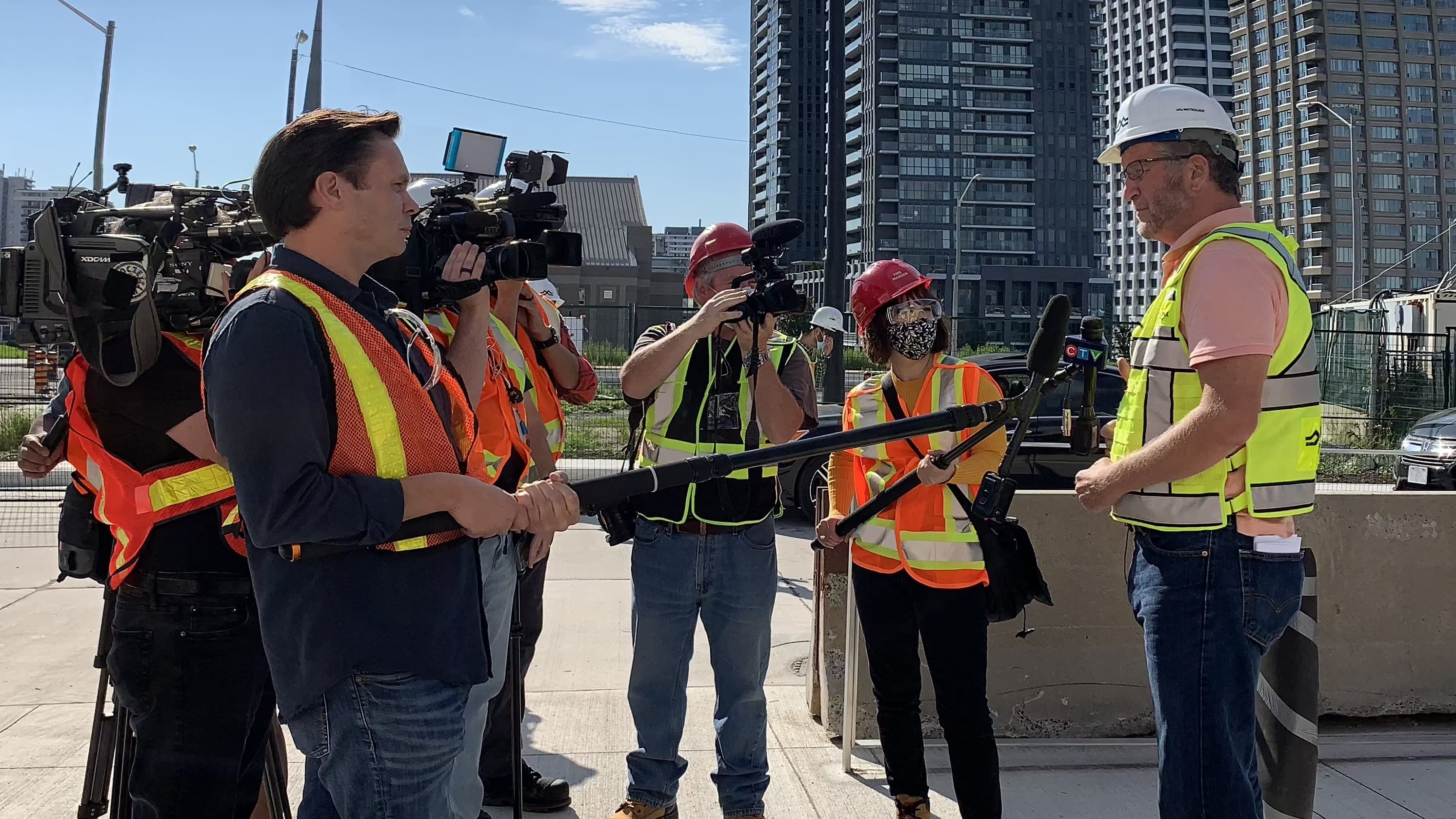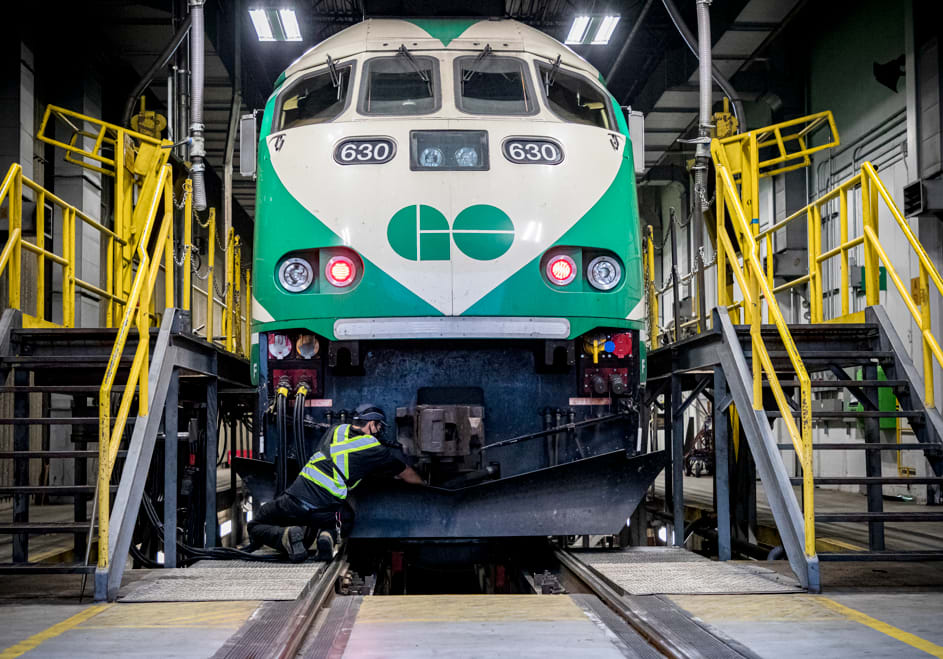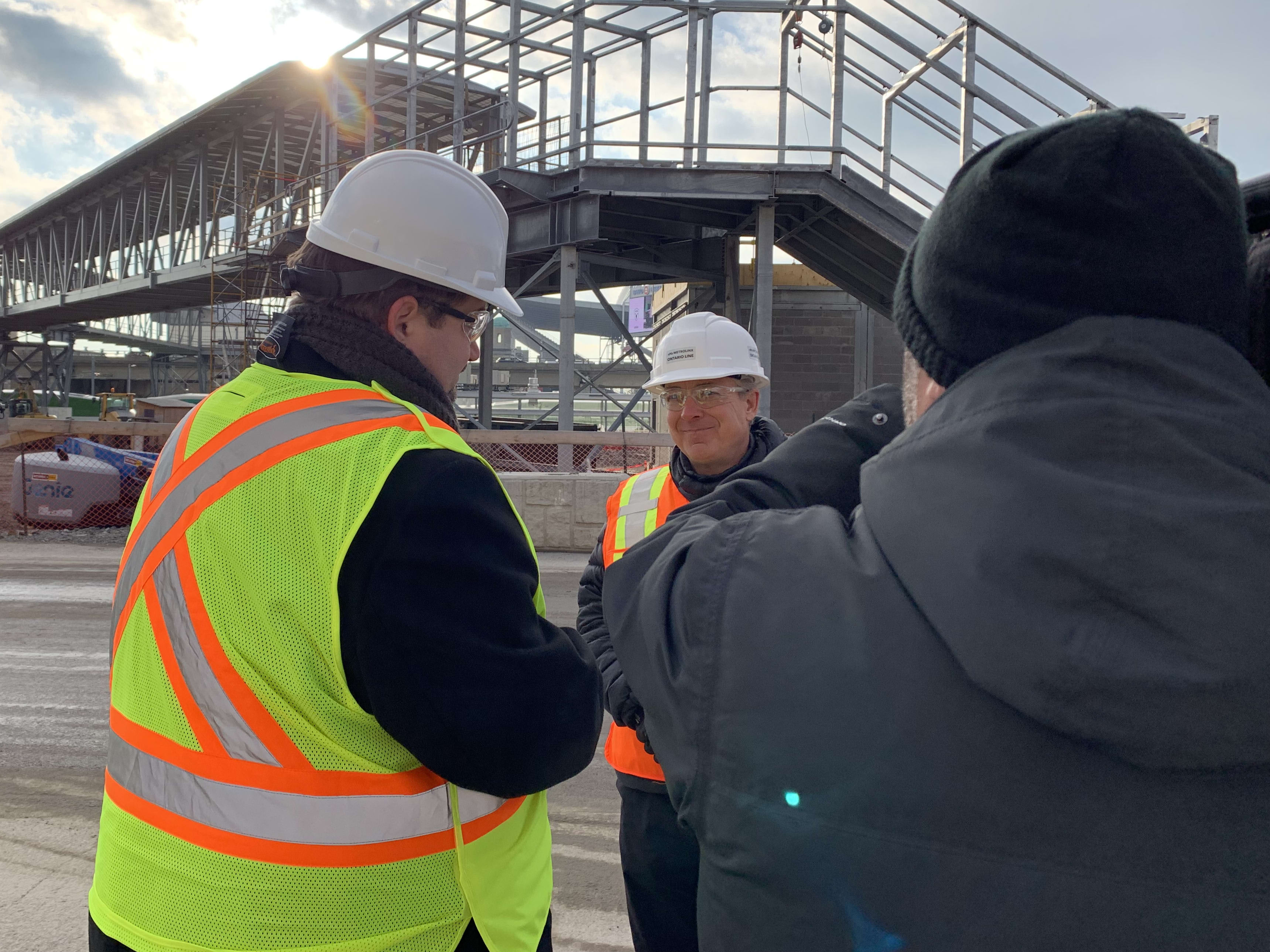Visit our archive of past Metrolinx news, announcements, project updates and more.

Press Room
Contact Metrolinx Media Relations
The Metrolinx Press Office is open on weekdays between 9:00 a.m. and 5:00 p.m. An after-hours team member can be reached for urgent inquiries at the phone number below. All non-urgent after-hours media calls will be responded to the next business day.
Email: mediarelations@metrolinx.com
Phone: (416) 202-5859
Please note: The Media Team is unable to help with general customer queries - please click here to reach customer care.
Latest updates
Requests from media
Media are asked to direct all inquiries and requests to the media relations team who will facilitate arranging interviews with a spokesperson, provide access to facilities and/or provide answers to questions and background information (including high-res images).

